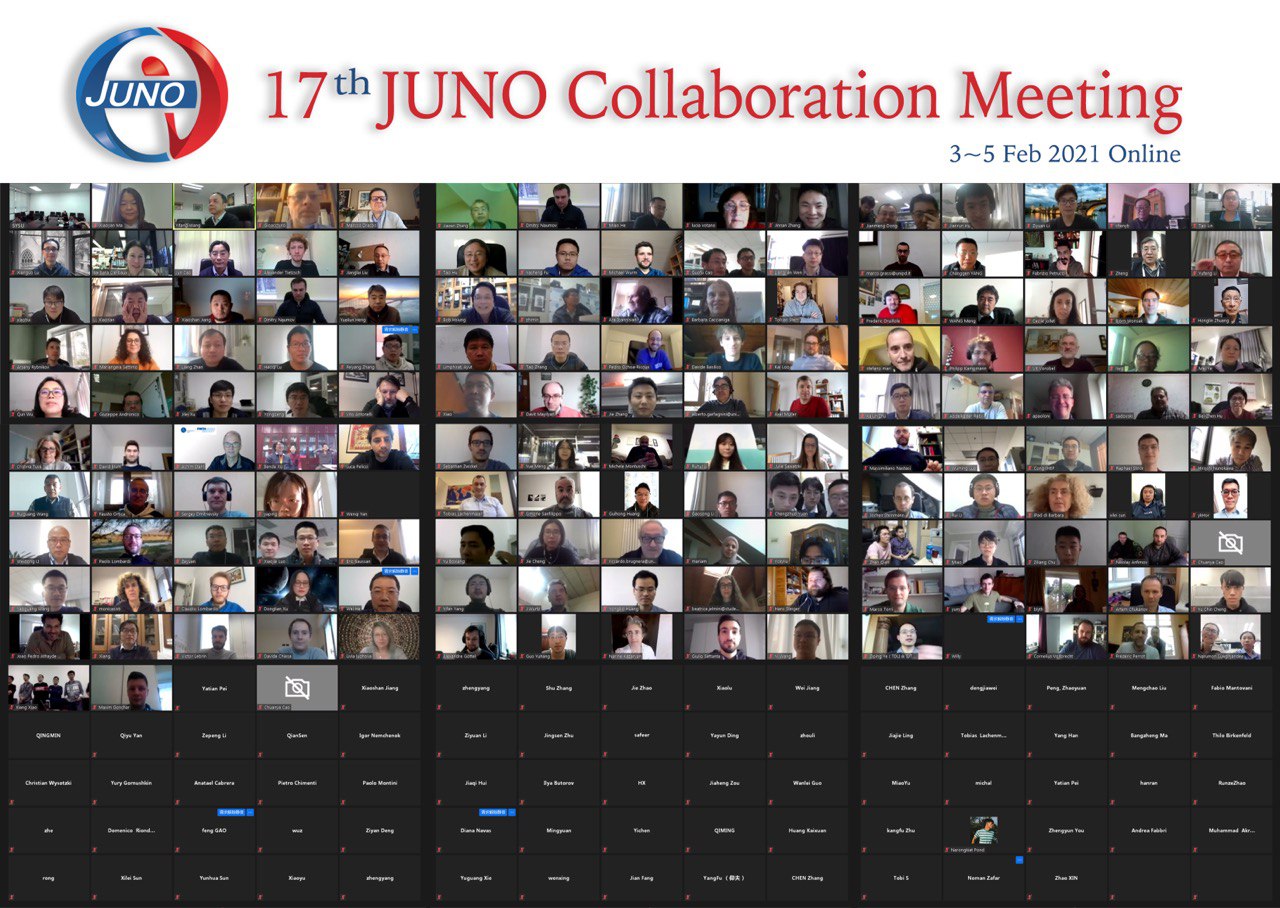The 17th JUNO Collaboration Meeting Took Place

For your reference:
The Jiangmen Underground Neutrino Observatory (JUNO) is being constructed in China, 150 km to the west of Hong Kong. The experimental hall of the JUNO facility is located at a depth of 700 m. The detector, filled up with 20 t of liquid scintillator, will use 20’ photomultipliers (20000 pcs) and 3’ photomultipliers (about 25000 pcs) for detection of antineutrino interactions released by the powerful reactor complex. An average distance between reactors and the JUNO detector is about 53 km, which ensures the maximum sensitivity of the experiment for determining the neutrino mass hierarchy, a crucial objective of the collaboration.
The Joint Institute for Nuclear Research has been involved into the JUNO collaboration for more than five years. JINR is in charge of designing the high-voltage power system for all optical modules and performing precision measurements of photomultiplier characteristics, and is engaged into development of a precision muon tracker. One of three European JUNO data storage and processing centres will be established at JINR. This centre will be also involved in design and manufacturing of the cryogenic TAO detector for record precision measurements of reactor antineutrino energy spectra, as well as in data simulation and reconstruction. JINR representatives are members of the JUNO collaboration leading boards.

